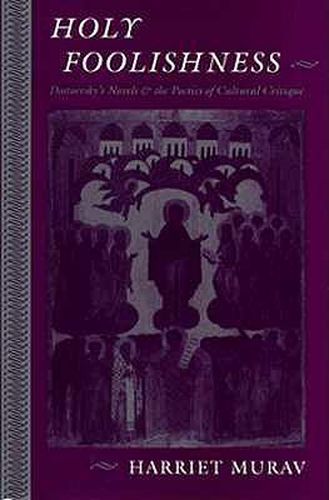Readings Newsletter
Become a Readings Member to make your shopping experience even easier.
Sign in or sign up for free!
You’re not far away from qualifying for FREE standard shipping within Australia
You’ve qualified for FREE standard shipping within Australia
The cart is loading…






This book examines the ways in which Dostoevsky’s adoption and reinvention of the medieval Russian holy fool - in Russian Orthodoxy, a person who feigned madness or folly as an ascetic feat of self-humiliation, serves as a locus for a critique of his culture’s increasing reliance on the scienti1c paradigms of Claude Bernard’s physiology, and as a source of formal narrative innovation in his novels. The author 1rst explores the paradoxical hagiography of the holy fool, whose saintly acts are disguised under the mask of demonic folly. She then traces the rise of medical science in the nineteenth century and the increasing authority of the new scienti1c models of human behavior, especially the all-important notion of ‘the normal and the pathological’. In its theoretical orientation, the book both builds from and criticizes Bakhtin’s work on carnival.
$9.00 standard shipping within Australia
FREE standard shipping within Australia for orders over $100.00
Express & International shipping calculated at checkout
This book examines the ways in which Dostoevsky’s adoption and reinvention of the medieval Russian holy fool - in Russian Orthodoxy, a person who feigned madness or folly as an ascetic feat of self-humiliation, serves as a locus for a critique of his culture’s increasing reliance on the scienti1c paradigms of Claude Bernard’s physiology, and as a source of formal narrative innovation in his novels. The author 1rst explores the paradoxical hagiography of the holy fool, whose saintly acts are disguised under the mask of demonic folly. She then traces the rise of medical science in the nineteenth century and the increasing authority of the new scienti1c models of human behavior, especially the all-important notion of ‘the normal and the pathological’. In its theoretical orientation, the book both builds from and criticizes Bakhtin’s work on carnival.